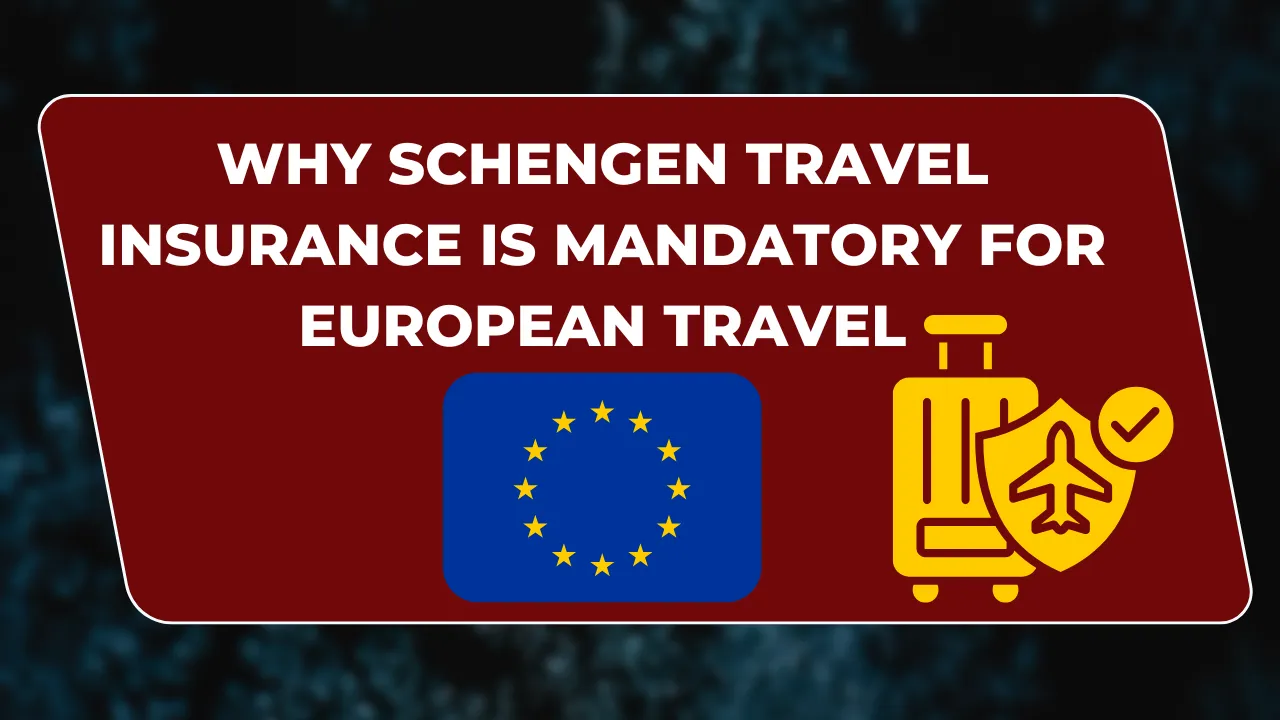Traveling to Europe is an exciting adventure, but before you book flights or hotels, there’s an essential requirement you cannot overlook: Schengen travel insurance. This type of insurance is mandatory for anyone applying for a Schengen visa, and it ensures that travelers are covered for medical emergencies, accidents, and unexpected events during their stay in the Schengen Area. Understanding the rules, coverage, and selection process can help you meet visa requirements while keeping your travel experience safe and stress-free.
What Is Schengen Travel Insurance?
Schengen travel insurance is a specialized insurance plan that covers medical expenses and emergencies for travelers visiting the 29 countries in the Schengen Zone. It is specifically designed to meet the minimum requirements set by Schengen visa regulations, which include coverage for:
-
Medical emergencies including hospitalization and treatment
-
Emergency medical evacuation in case of serious illness or accident
-
Repatriation of remains in the event of death
-
Accidental death or disability benefits
The insurance must be valid for the entire duration of your stay in the Schengen Area and must cover at least €30,000 in medical expenses.
Why Is Schengen Travel Insurance Important?
Travel insurance is not just a bureaucratic requirement—it provides peace of mind and financial protection. Here are key reasons why it is crucial:
-
Mandatory for Visa Approval: Most Schengen embassies will reject your application without proof of insurance.
-
Protection Against Medical Emergencies: Healthcare in Europe can be expensive; insurance ensures you’re not burdened with unexpected bills.
-
Emergency Assistance: Provides 24/7 support, including hospital transfers and emergency evacuation.
-
Travel Disruption Coverage: Many policies also cover trip cancellation, lost baggage, and delays.
Who Needs Schengen Travel Insurance?
Anyone applying for a short-stay Schengen visa must have valid travel insurance, regardless of nationality. Even if your home country has reciprocal health agreements with some European nations, embassies still require a dedicated Schengen-compliant insurance policy.
This includes:
-
Tourists
-
Business travelers
-
Students attending short-term programs
-
Visitors to family or friends
-
Travelers in transit through Schengen airports
Coverage Requirements for Schengen Travel Insurance
Schengen travel insurance must meet specific criteria to be accepted by embassies:
-
Minimum Coverage: €30,000 for medical emergencies and repatriation
-
Validity: Must cover the entire duration of your stay
-
Schengen Zone Coverage: Applicable in all Schengen countries
-
Emergency Services: Must include hospitalizations, ambulance services, and medical evacuation
-
Repatriation: Coverage for returning the insured in case of serious illness or death
Types of Schengen Travel Insurance
Depending on your travel plans and needs, there are various types of Schengen travel insurance policies available:
Basic Schengen Travel Insurance
Covers only the minimum requirements, including medical emergencies and repatriation. Ideal for budget travelers or short stays.
Comprehensive Travel Insurance
Includes additional benefits such as trip cancellation, lost luggage, flight delays, and personal liability. Suitable for longer stays or high-value trips.
Student Travel Insurance
Tailored for students studying abroad in Europe. Often includes coverage for accidents, illness, and sometimes study-related emergencies.
Family Travel Insurance
Provides coverage for multiple family members traveling together. Often more cost-effective than individual policies.
Senior Travel Insurance
Specialized plans for older travelers, with enhanced medical coverage and higher limits for pre-existing conditions.
How to Choose the Right Schengen Travel Insurance
Selecting the right policy requires careful consideration. Here are factors to keep in mind:
-
Coverage Limit: Ensure it meets the €30,000 minimum and ideally covers additional expenses.
-
Medical Services: Check if hospitalizations, doctor visits, and prescriptions are included.
-
Emergency Assistance: Look for 24/7 multilingual support and evacuation services.
-
Additional Benefits: Consider coverage for lost luggage, trip cancellation, and travel delays.
-
Policy Flexibility: Make sure the insurance can be extended if your travel dates change.
-
Price: Compare different providers, but do not compromise coverage for lower premiums.
Cost of Schengen Travel Insurance
The cost varies based on:
-
Duration of stay
-
Traveler’s age
-
Type of coverage selected
-
Destination within Schengen countries
For a typical short-term tourist trip of 7–14 days, policies may start from as low as €10–€15 per person, while comprehensive plans for longer trips or older travelers can cost €50–€100 or more.
How to Apply for Schengen Travel Insurance
Applying for Schengen travel insurance is straightforward:
-
Compare Providers: Look for reputable insurance companies offering Schengen-compliant plans.
-
Select Policy Type: Choose the type based on your travel needs (basic, comprehensive, family, etc.).
-
Provide Travel Details: Enter travel dates, countries, and personal information.
-
Purchase Policy: Pay online for instant coverage.
-
Receive Confirmation: Get a digital or printed insurance certificate to submit with your visa application.
Common Mistakes to Avoid
-
Insufficient Coverage: Not meeting the €30,000 requirement can result in visa rejection.
-
Incomplete Validity Dates: Ensure the insurance covers the entire trip duration.
-
Not Including All Countries: Coverage must be valid in all Schengen countries you plan to visit.
-
Ignoring Policy Terms: Carefully read exclusions, especially for pre-existing conditions and high-risk activities.
Tips for a Smooth Visa Application
-
Apply for insurance before submitting your visa application.
-
Keep both digital and printed copies of your policy.
-
Check if the embassy has specific preferred insurers.
-
Ensure the policy certificate clearly states coverage limits and emergency contact information.
Benefits Beyond Visa Compliance
Schengen travel insurance is more than a visa requirement; it offers multiple advantages:
-
Peace of Mind: Knowing medical emergencies are covered allows for worry-free travel.
-
Financial Security: Avoid paying expensive hospital bills out-of-pocket.
-
Assistance in Emergencies: Quick access to hospital admission and evacuation if needed.
-
Trip Protection: Additional benefits like lost baggage or travel delay coverage protect your investment.
Conclusion: Secure Your European Trip with Schengen Travel Insurance
Schengen travel insurance is an essential part of planning a trip to Europe. Not only is it a visa requirement, but it also ensures travelers are prepared for unexpected events. By selecting the right policy, understanding coverage limits, and following embassy guidelines, you can enjoy a safe, stress-free journey across the Schengen Zone.
Whether you are traveling for tourism, business, or study, having Schengen travel insurance provides security, convenience, and peace of mind, making it a critical component of any European adventure. Ensure your travel insurance is comprehensive, valid, and meets all requirements to maximize safety and compliance during your trip.
















